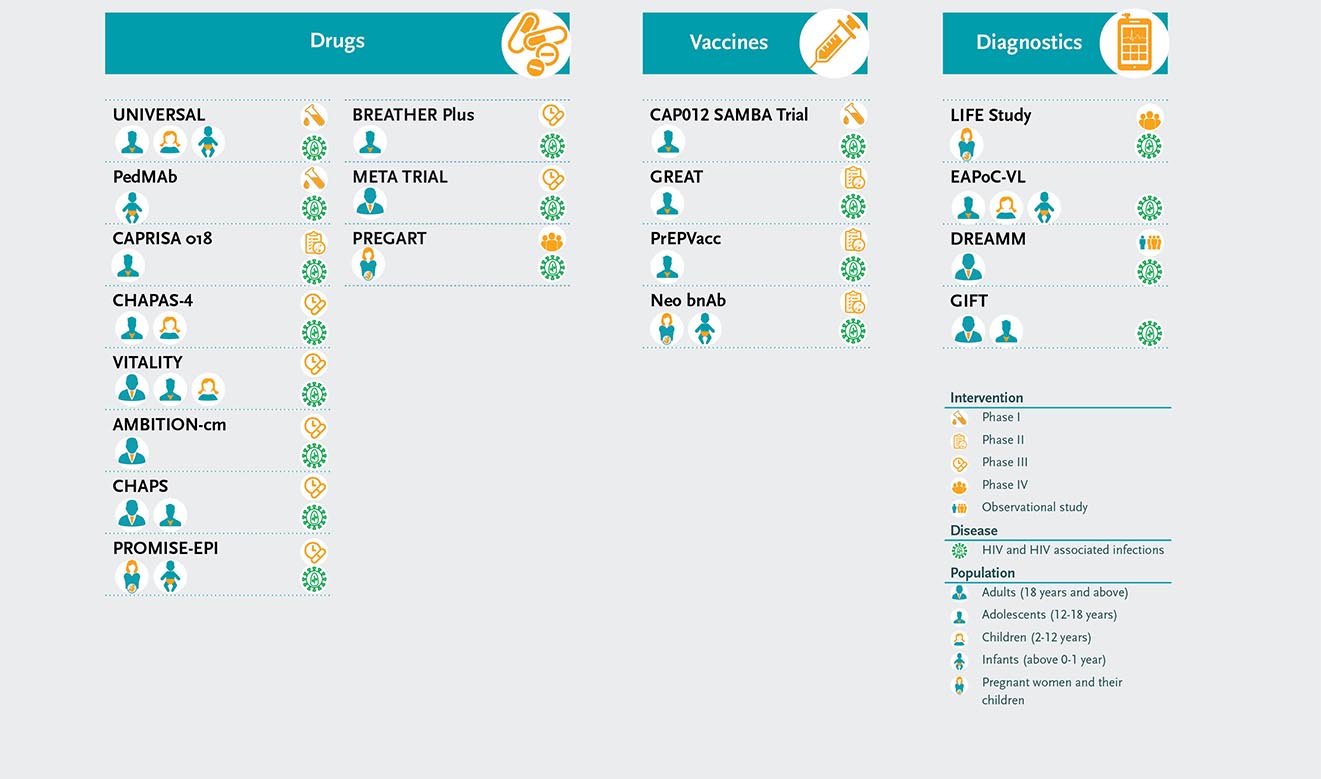HIV (human immunodeficiency virus) is a virus that targets the immune system and weakens people’s defense against many infections and some types of cancer that people with healthy immune systems can fight off. As the virus destroys and impairs the function of immune cells, infected individuals gradually become immunodeficient. Immune function is typically measured by CD4 cell count.
The most advanced stage of HIV infection is acquired immunodeficiency syndrome (AIDS). AIDS is defined by the development of certain cancers, infections or other severe long-term clinical manifestations. [Source: WHO]
According to UNAIDS, approximately 37.7 million people were living with HIV in 2020. Even though considerable progress has been made to end the AIDS epidemic by 2030, there were still around 1.5 million new infections in 2020 and 680,000 people died from AIDS-related illnesses.
EDCTP portfolio: HIV & HIV-associated infections
Collaborative clinical trials and clinical research (2014-2021)


